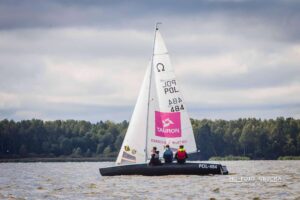On the 25th January, another meeting of the Parliamentary Mining and Energy Team took place in the Sejm. This time devoted to „Perspectives of the Polish mining and energy sector in the light of the 24th UN Climate Summit in Katowice on 3-14 December 2018.”
The Leader of the Team, Ireneusz Zyska (Free and Solidary – WiS) emphasized, opening the meeting, that the COP is held in Poland for the third time. This time, in the sharp context of the decarbonisation process favoured by the majority of the European Union, understood as the accelerated decommissioning of coal-fired power generation and coal mining. However, as Poland, we cannot lose this COP24, we must do everything we can to reap the maximum benefit from it for our economy, energy, and mining.
Climate policy is supposed to have a universal meaning
MP Zyska pointed out that „the struggle for climate was dominated by left-wing circles,” which ideologically limits its meaning and significance. COP24 should introduce a change here, open to right-wing circles, to the encyclical „Laudato Si.” The goal that Poland should strive to achieve at COP24 is to join all our forces in the fight for Polish economic interests, „for Polish power engineering, also the conventional one.”
The debate was based on two presentations. The first one was held by Paweł Sałek, Secretary of State in the Ministry, Government Plenipotentiary for Climate Policy. At the heart of this presentation was, on the one hand, the necessary climate protection policy and, on the other hand, Poland’s energy security. The COP24 aims to negotiate the Implemented Package for the Paris Agreement. This will not be easy, given, for example, the strict ideological approach of Brussels and the majority of the EU and, on the other hand, the exceptionally pragmatic attitude of countries such as China and India, which are continuing to invest in coal-fired power generation while supporting RES. Poland at COP24 intends to present its successes in clean coal technology, which is friendly to climate protection. A certain way of acknowledging our concept of climate policy (the role of forests and tree planting) is to entrust the function of the COP24 President to Jan Szyszko, the former Minister at the meeting in Bonn.
Decarbonisation as a long-term process
The presentation held by Krzysztof Paturej, President of the International Centre for Chemical Safety and Security in Poland (ICCSS) focused on the thesis that decarbonisation of the economy is a long-term objective. In a certain perspective, fossil fuels will disappear and the economy as a whole will undergo a profound transformation. Nowadays, the following issues will become increasingly important: 1) Green Finance, 2) Green Economy, 3) Green Diplomacy (which will support these new finances and this new economy). In these new trends there is a place for the Polish path to decarbonisation, without radical coal elimination. The EU will have to accept this. Paturej admitted that „most climate protection movements do not have a political presence of Catholics.” As part of green diplomacy – as Paturej notes – it is possible and worthwhile to build a coalition of fossil fuels, not limited to coal. However, the ultimate goal of global energy transformation is distributed power generation.
Divergence of evaluations and views
In the debate, Wiesław Klimek, from the Polish Industrial Lobby named after Eugeniusz Kwiatkowski, pointed out that in the preparations for COP24, it is an anachronism to refer to the Kyoto Protocol again. Climate change and its causes now need to be looked at differently. Practically and realistically, but not ideologically. Klimek also pointed out that Poland has a well-developed energy industry and it is worthwhile to enter the green energy industry with the production of appropriate installations.
Prof. Konrad Świrski has characterised the COPs. Their role is different than we think. These are not mass discussions, but rather taking up the predefined assumptions in a narrow circle. They are supposed to greatly accelerate the development of green energy. There is not much we can do here – because the roles are already being given out – said the professor. We can only protect our fundamental interests in backstage negotiations. „What is needed is an idea of how to do it without fighting head on.”
Tomasz Rogala, the President of the Polish Mining Group, stressed that each successive COP should set general objectives in climate policy. No specific standards or limits should be set. For the time being – as noted by Rogala – the European Union has shown that it is not at all capable of planning, including decarbonisation. This is clearly demonstrated by the development of coal-fired power generation and the rise in CO2 emissions in Germany.
Dawid Salamądry, an energy market expert, stated in a corrigendum that „coal is still being invested in, although not in the EU. For example, China or the major Singaporean companies are investing huge funds in the construction of modern, high-efficiency coal-fired power plants and in coal mining.”
At the end of the debate, Deputy Minister Sałek stressed that in energy and climate policy the leading role belongs to states, not to individual regions, cities, and towns. It is the states that are responsible for societies and citizens, not the dispersed local units. As far as the coming years, coal and fossil fuels cannot be eliminated from the energy mix for a long time. So, Poland will have many allies for its well-developed ideas. As for the „under-represented Catholics” in climate protection movements, this is likely to change soon.








